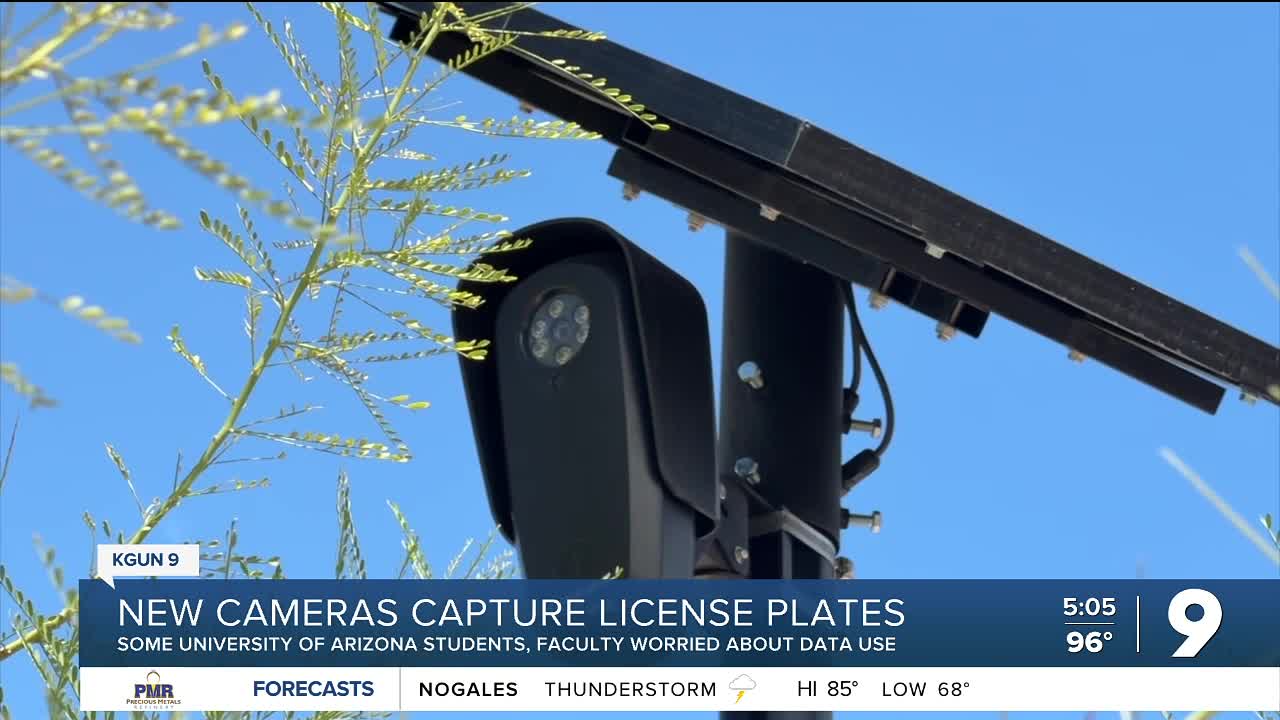TUCSON, Ariz. (KGUN) — The University of Arizona Police Department has installed more than 50 automated license plate reading cameras on and around its campus, sparking concerns about privacy, transparency and data-use among students and faculty.
The cameras, produced by Atlanta-based Flock Safety, are mounted on light poles and other fixtures and are designed to collect license plate information. UAPD says the system’s purpose is “to help prevent crime.”
Some students say they were unaware of the cameras' existence. “I didn’t know those were a thing, so maybe if they talked about it?” said nursing student Laney Harmsen. “I had no idea those were on campus,” added Libby Kum.
Faculty leadership also say they were left in the dark. “To be frank, I had no knowledge of these, nor any understanding of this before it was brought to my attention by community members,” said Leila Hudson, chair of the UA Faculty Senate.
UAPD issued a statement saying the system “strengthens our ability to maintain a safe and secure campus environment. Operated under established protocols that comply with privacy laws and regulations, records are deleted after 30 days. Third-party access to the data is prohibited without prior approval from UAPD or a court order.”
Flock Safety also released a statement explaining that it “does not disclose specifics about the number, location, installation dates of cameras, or details of contracts for any customer.” For the UA, the release said the cameras are “an investigative tool designed to help agencies solve and prevent crime,” and that data is “automatically deleted after 30 days, by default.”
Some community members want more clarity. Hudson has expressed concerns about “the nature of these contracts, the nature of the data that’s being collected and the guidelines and guardrails on the collection of this data.”
Student Libby Kum said she could see value in certain uses of the technology: “If someone fled a scene or something and they need to know where they’re going, then I understand using that for some things that are just in the moment.”
The debate comes amid broader scrutiny of Flock Safety’s license plate reader (LPR) systems across Arizona and the U.S. Earlier this month, a report by AZPM noted that community members are asking UAPD for information about whether border enforcement agencies have accessed data collected by the university’s cameras.
Civil liberties groups are also raising alarms. The report states that “faculty want more information on what is being done with the data and are concerned about student safety. ‘And the possible abuse of detailed information about vehicle traffic for a variety of different purposes,’” said Hudson.
UAPD has declined to provide full details, saying that much of the information — such as specific contracts or cost of the individual cameras and the camera system — would require a public information request.
As the university community continues to press for more transparency, questions remain about how the cameras are being operated, what oversight exists, and whether the protections claimed by UAPD and Flock align with actual practice.
——
Eddie Celaya is a multimedia journalist at KGUN 9. Born in Tucson and raised in the Phoenix area, Eddie is a life-long Arizonan and graduate of the University of Arizona who loves the desert and mountains and hates the cold. Previously, Eddie worked in print media at the Arizona Daily Star. Share your story ideas with Eddie at edward.celaya@kgun9.com, or by connecting on Facebook or Instagram.

----
STAY IN TOUCH WITH US ANYTIME, ANYWHERE







